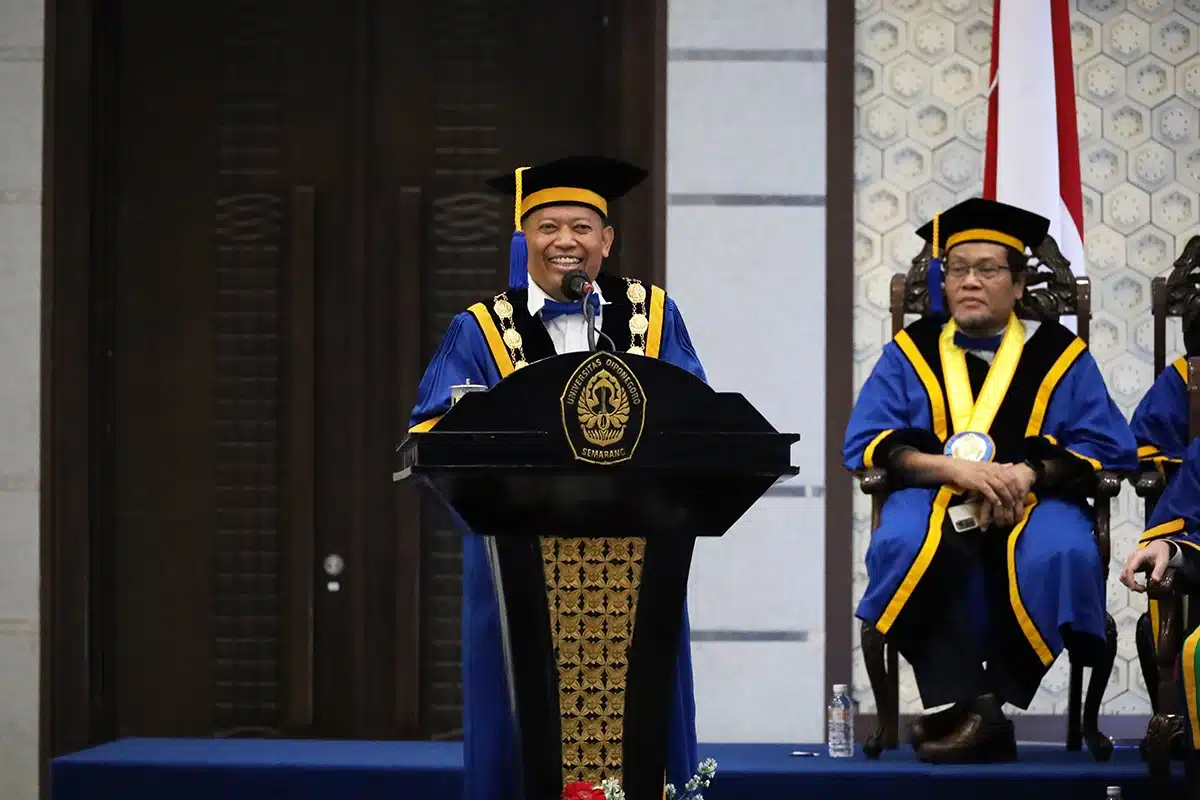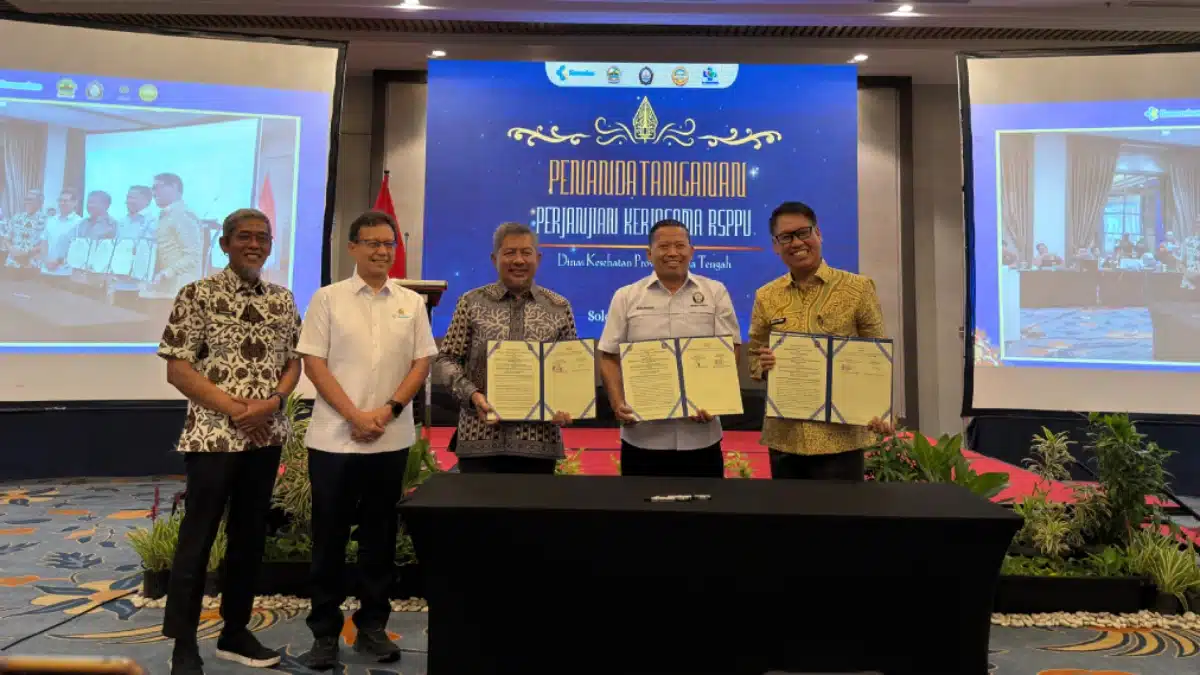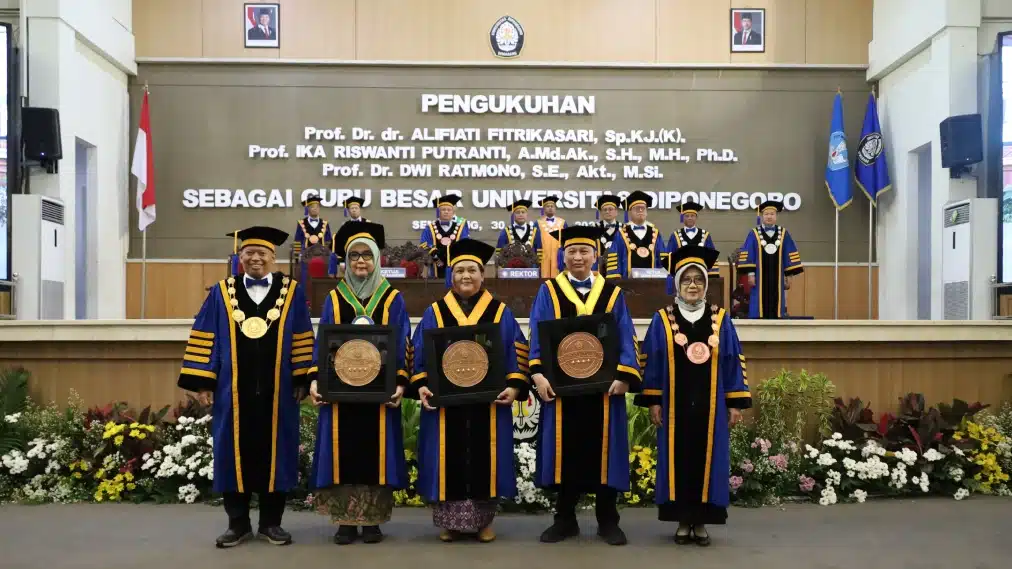Semarang – Central Java (16/11). Turunrejo Village, Brangsong District and Kumpulrejo Village, Kaliwungu District are two villages in Kendal Regency that have the potential to develop duck livestock. The maintenance of ducks, both laying and broiler ducks, has long been cultivated by the community, but currently their productivity is low due to high feed prices and the prohibition of using antibiotics as growth boosters. These two things are the cause of the decline in farmer income. Seeing the problems in this field, the Faculty of Animal and Agricultural Sciences, Diponegoro University, Semarang sent a team to provide assistance through Community Service activities with the theme “Farmer Assistance in Synbiotic Applications and Frozen Food Production from Ducks to Increase the Income of Duck Farmers in Kendal Regency” on Sunday (13/11). This Community Leading Commodity Strengthening activity is a forum for disseminating research results in tertiary institutions and is a form of Diponegoro University’s concern for the surrounding environment.
The Community Service team is led by Istna Mangisah, S.Pt., M.P. and the team’s work program is planned to be carried out for two years. The first year of activities focused on training duck farmers in producing affordable, waste-based and synbiotic-rich feed. “Synbiotics are a combination of probiotics and prebiotics that provide great benefits to duck productivity because they can improve intestinal microflora and stimulate the growth of beneficial bacteria, increase body resistance, reduce mortality and improve livestock health and improve poultry (chickens, ducks, quail) performance,” said Istna Mangisah to duck farmers in the villages of Turunrejo and Kumpulrejo. Istna further explained that the administration of synbiotics has a better effect than the administration of probiotics and prebiotics separately, because the specific substrate is available for fermentation.
In addition to training on making affordable and easy synbiotics, training on ration formulation based on waste feed ingredients was also carried out, both from agricultural waste, industrial waste and household waste. Affordable feed ingredients are obtained by utilizing the potential of local materials and existing waste. For this reason, farmers are also given training in household waste processing for maggot cultivation. Maggot is the larva of the BSF black fly, which has a high protein content (up to 38%) and can be fed to poultry. “Until now, various research results have shown that maggot is safe to use as a feed mixture for poultry, because BSF flies are not disease-carrying vectors,” explained Prof. Dr. Ir. Vitus Dwi Yunianto B.I., M.S, M.Sc., one of the Undip professors who was actively involved in this activity.
The Community Service team has also handed over assistance in the form of 6 quintals of duck feed, 20 L of synbiotic, 120 grams of maggot seeds (eggs), and a set of equipment for maggot cultivation. The community service activities are expected to contribute to increasing livestock productivity, providing healthy animal feed and also improving the economy of rural communities.









